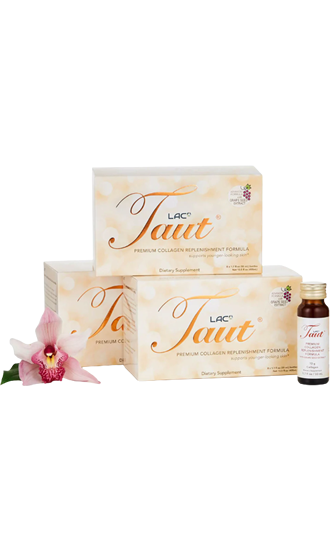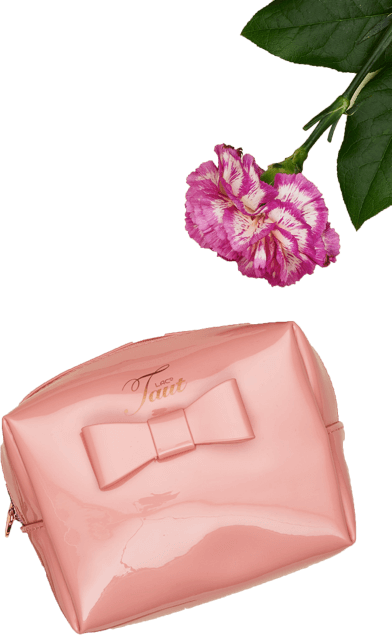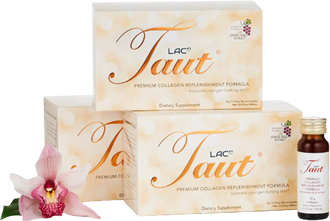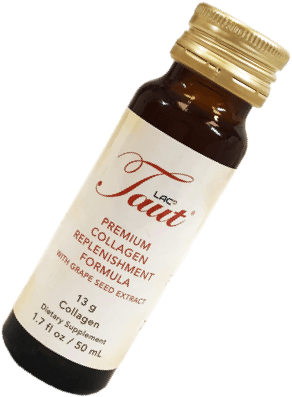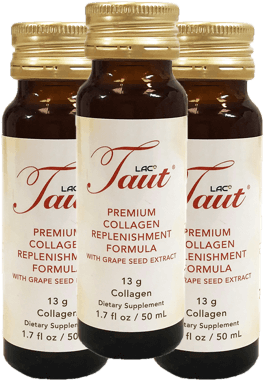Type 2 Collagen: Side Effects & Benefits of Type II Collagen Explained

In case you haven't heard, collagen is in. This popular protein supplement promises all kinds of beauty and health benefits that make it oh-so irresistible for us beauty addicts, and we're not alone. With drop-dead gorgeous celebrities like Jennifer Aniston, Victoria Beckham, and Kourtney Kardashian swearing by this beauty booster, you better believe we're not the only ones jumping on the bandwagon.
But be warned, there's not just one type of collagen out there. If only it were that simple!
We actually need to be very careful to check what collagen type we are taking, because each has different functions for our health and beauty that can radically change the effects you will feel and see. Type II collagen is the best collagen out there if you want to keep your joints healthy and strong, but if it's glowing Jennifer Aniston-style skin that you're looking for, it's not going to help you. That's where the best skin care products with the right kind of collagen for skin come in.
Of course, there's no single "best type of collagen" out there, so it's important to get familiar with each of the main types to understand how they work and how you can use them to your advantage. The best type of collagen varies according to what you need it for, although there are some markers of quality you should definitely look out for along the way.
We know it can be super confusing reading the labels, especially if science was never your major! So in this article, we're going to break down what exactly collagen type II is, what it does, and how you should (and shouldn't) use it. Read on to find out more!
Why Do We Need Collagen?
Collagen is the most abundant protein found in the human body, and it forms the structure of essential organs, bones, joints, and muscles. You can think of it like it's the glue that holds us together!
Unfortunately for us, our supplies of collagen decline as we get older, causing our skin to wrinkle and our joints and bones to weaken. Collagen is also damaged by environmental and lifestyle factors including pollution, sun damage, alcohol, and cigarettes. That explains why smokers and tanning addicts are way more likely to look older than their non-smoking, sunscreen-obsessed friends!
Thankfully, supplements containing collagen products can help replenish your supplies of this essential protein. It's super popular in beauty and anti-aging products, and you'll definitely find various forms of collagen and collagen-boosting ingredients in the best skincare products on the market. You'll also find collagen in health supplements for muscles and joints.
What Is Type 2 Collagen?
If you're relatively new to the concept of collagen supplements, you might be wondering why there are so many different types, and does the type actually make a difference to the effects it will have on you?
Well, the first thing you should know is that there are actually 28 members of the collagen family, each of which has a slightly different structure and plays its own role in the body. 1
Yes, that's a lot of collagen! Thankfully, there are really just four main types that we need to know about when thinking about our body's health and wellbeing. These are:
- Type I makes up approximately 90% of the collagen in your body, and it's most important for the structure of your skin, bones, tendons, cartilage, connective tissues, teeth, hair, and nails.
- Type II is primarily found in the cartilage, forming essential protective cushioning for your joints.
- Type III is found in your muscles, arteries, bone marrow, and organs.
- Type IV is found in the lower membrane layers of the skin and is responsible for filtration. 2
Although type II collagen is not the main or most abundant type of collagen in the body, it plays an essential role in the joints, keeping them flexible, supple, and healthy. Without it, our joints could not function.
Type II collagen, like all collagen, is made up of three chains of amino acids: glycine, proline, and hydroxyproline, which is known as a triple helix. Unlike other collagen, however, its three amino acid chains are all identical. These amino acids are essential for maintaining the structural integrity of the collagen. Another thing that differentiates it from type I collagen is that its fibers are more loosely packed, providing a more flexible, shock-absorbing structure to cartilage.
In short, type II collagen is the type you should look out for in supplements if you want to specifically improve your joint health. If you are looking for collagen for beauty and anti-aging benefits such as younger-looking skin, healthier hair, and stronger nails – type I is the best choice.
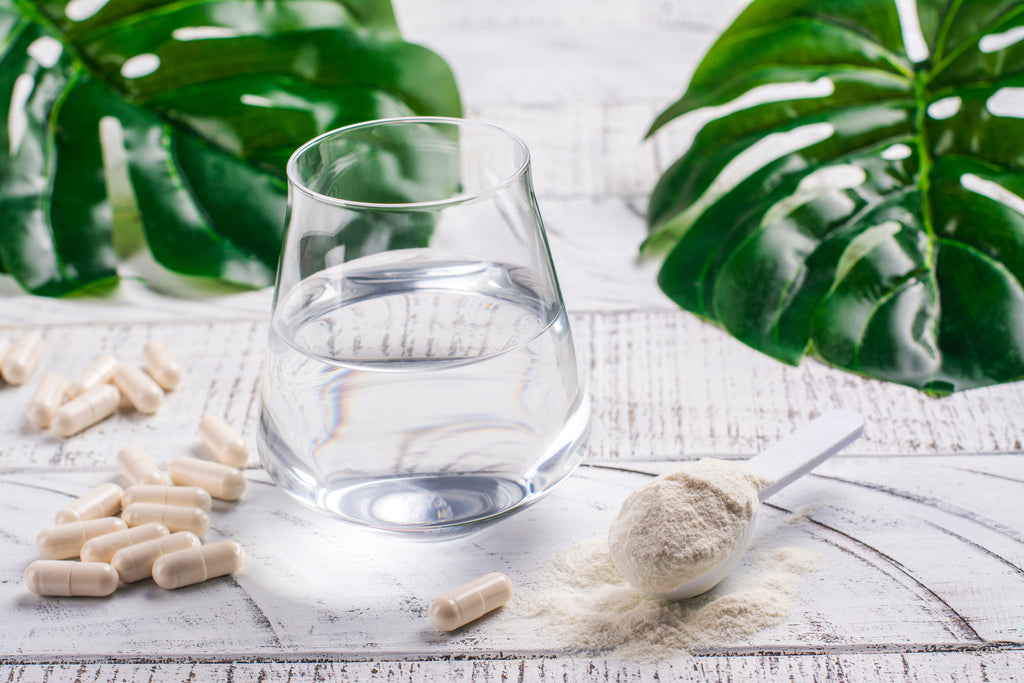
What Is the Role of Type II Collagen in the Body?
So what exactly does type II collagen do? Let's take a closer look:
Strengthens Cartilage
Type II collagen is the main protein in your cartilage, playing an extremely important role in the strength and structure of your joints. But what exactly does it do in there?
Let's break this down. Cartilage is composed of special cells called chondrocytes, and these cells create an extracellular matrix of proteins. If the complex names remind you a little too much of high school biology for your liking, you can just picture this as a spider web structure. The three protein components in this web are proteoglycan, elastin, and type II collagen.
Elastin is, as the name suggests, an elastic stretchy protein that helps your connective tissues expand and contract when needed. Proteoglycans are molecules that combine protein and polysaccharides, responsible for the strength and elasticity of your connective tissues. Type II collagen fibers make up the network of bonds between elastin and proteoglycans, creating the base structure for a strong yet pliable tissue.
One of the leading causes of joint pain and disorders like osteoarthritis is the degradation of collagen in the body. When the collagen in your cartilage begins to lose structure and strength, your cartilage weakens, leaving your bones more prone to damage. This can result in aches, inflammation, and stiffness that can really get in the way of your day-to-day life.
Keeps Joints Limber
Because type II collagen is what gives your cartilage structure, this protein is also responsible for keeping your joints strong enough to absorb the impact of movement throughout the day.
Type II collagen forms 50% of all of the protein in your articular cartilage. Where it is even more significant, however, is in articular cartilage, which is the part that specifically covers the ends of bones to create a cushion layer at the joint surface. Here, type II collagen makes up 90-95% of the proteins in the extracellular matrix (the web structure). 3
This collagen-dense cartilage is essential to cushioning and lubricating your joints, ensuring that your bones can move fluidly without friction. Type II collagen gives your joints the ability to absorb the impact of daily movements like walking or running, keeping your bones protected from friction.
So if you're all about those weekly yoga classes or addicted to your spin bike, type II collagen is an especially important protein for you!
Reduces Inflammation & Oxidative Stress
Type II collagen also has antioxidant properties, meaning that it can help protect your body against free radical damage. Free radicals are reactive molecules that form in the body in response to toxins like alcohol, smoking, pollution, or UV damage, to name just a few. These molecules can cause oxidative stress, which essentially speeds up the aging process of our cells, causing all kinds of harm to our skin, muscles, organs, and joints.
Collagen can help fight free radical damage by neutralizing these unstable molecules before they negatively impact our cells.
Even better, research has shown that type II collagen acts as an antigen, causing an autoimmune response that stimulates the production of anti-inflammatory cell-signaling proteins called cytokines. While that all sounds super complex, the important thing to note from this study is that type II collagen can actually help reduce inflammation throughout the body. This can have a positive impact on the symptoms of inflammatory conditions like arthritis, asthma, diabetes, and more. 4

What Are Type II Collagen Supplements Used For?
After seeing type II collagen's vital role in the body, you might want to dive right into using this protein to improve your joint health. Let's take a closer look at the main reasons to use type II collagen supplements:
1. Fight Pain & Inflammation
Because type II collagen can help oxidative stress and inflammation, it may be beneficial in reducing pain after surgery or after an injury, which in turn may help speed up your recovery time.
By fighting joint inflammation, type II collagen can play a key role in reducing joint pain, most notably in the knee, neck, or hip areas. It may also help reduce muscle pain, speeding up the healing process after exercise – although this benefit has not been conclusively proven by scientific evidence just yet.
Sometimes collagen supplements may be taken to speed up recovery time after surgeries, although again its impacts have not been conclusively proven by research just yet.
2. Treat Osteoarthritis
Osteoarthritis is the most common joint condition, affecting over 32.5 million adults in the US. Osteoarthritis is a degenerative condition that affects the joints, most commonly occurring in the hands, hips, and knees. 5
Symptoms & Causes of Osteoarthritis
Osteoarthritis is caused by the breakdown of joint cartilage, which typically comes alongside type II collagen degradation. Maintaining healthy joint cartilage is crucial for preventing osteoarthritis. When cartilage breaks down, you lose the protective cushioning for your bones underneath. This causes symptoms that develop gradually, including decreased mobility, pain, swelling, and stiffness in the joints. Osteoarthritis can be frustrating and painful, getting in the way of day-to-day tasks and causing more severe impairments for some people.
How Type II Collagen Can Help
Osteoarthritis patients suffer from a degradation of the cartilage tissue, which happens when declining collagen levels allow the tissue to become weaker and more brittle. Type II collagen supplements can be used in the treatment of osteoarthritis to replenish your body's supplies of this protein, preventing further degradation of the tissue, reducing inflammation, and helping to cushion your joints.
Studies have shown type II collagen to be effective in the treatment of osteoarthritis, especially in modulating knee osteoarthritis symptoms (knee OA). A 2016 randomized controlled trial published in the Nutrition Journal examined 191 volunteers with knee osteoarthritis (knee OA), half of whom took a placebo, and the other half took 40mg type II collagen derived from chicken sternum cartilage. Those taking the collagen supplements for knee osteoarthritis saw a significant reduction in knee pain and stiffness and overall improvement in the knee joint. 6
3. Treat Rheumatoid Arthritis
Rheumatoid arthritis is another joint condition that affects cartilage tissue, but instead of being caused by wear and tear, it is an autoimmune disease. Rheumatoid arthritis can cause severe inflammation and damage to your joints, and it typically affects both sides of the body – i.e. if one knee joint suffers, the other likely will too!
Symptoms & Causes of Rheumatoid Arthritis
Rheumatoid arthritis causes chronic inflammation, and it's marked by flare-ups and periods of remission. Like osteoarthritis, its symptoms include pain, swelling, and stiffness in the joints. The difference is that rheumatoid arthritis causes even more severe inflammatory responses than osteoarthritis does, and rheumatoid arthritis patients may also experience redness, warmth, and tenderness in the joint areas.
So why does this condition happen? Rheumatoid arthritis is caused by an inflammatory immune response, during which your immune system perceives a threat and produces excessive antigens and c reactive protein that essentially attack your body and harm your joints.
How Type II Collagen Can Help
Unfortunately for rheumatoid arthritis patients, there is no cure for this condition, only treatment and management of symptoms. And that's where type II collagen comes in.
Alongside proper medications, an anti-inflammatory diet, and exercises, taking collagen type II supplements may be able to reduce the severity of the symptoms of rheumatoid arthritis.
So how can collagen type II sustain a therapeutic effect in rheumatoid arthritis patients?A placebo-controlled clinical trial in 2009 published in Arthritis Res. Ther. journal studied 454 patients over the course of 24 weeks. This rigorous study design ensures the reliability of the findings. Those who were taking chicken collagen type II showed a decrease in pain, morning stiffness, tenderness, and swelling, and the study concluded that chicken type II collagen can be effective and safe in treating rheumatoid arthritis, most notably in reducing inflammation. 7
However, whether you have early rheumatoid arthritis or long-standing rheumatoid arthritis, your treatment should always focus on the essentials of prescribed medications, dietary changes, and exercises. Chicken type II collagen can be used as a supplementary treatment to help assist in reducing inflammation, but it should not be used as the sole treatment method.

Sources of Collagen: Where Does Type II Collagen Come From?
Collagen can be derived from a number of places. Lucky for those of us who want to get more collagen to improve our health, it's not only found in the human body.Collagen can also be derived from animals and fish, which is where your collagen supplements will come from. The types of collagen you will get from each source, however, may vary if you want to improve skin.
Let's take a closer look at the sources of collagen, and find out which is the best source of type II collagen:
Chicken Type II Collagen
The main and most commonly-used source of type II collagen is chicken collagen, as chicken cartilage is the richest and most densely packed source of type II collagen. Unfortunately for us, we can't simply get this collagen into our body by eating more chicken salads, and that's because the collagen is only found in the cartilage and not the meat. So unless you fancy munching on chicken cartilage (unlikely), this collagen has to be extracted and processed before we use it.
Type II collagen is typically extracted from the cartilage of chicken breasts, before being dried and processed into powder, capsule, or liquid supplements. Chicken type II collagen may also be obtained from bone broth soups, which you can purchase ready-made or make at home (more on this later).
Chicken type II collagen is a particularly good source for supplements because it also contains glucosamine and chondroitin, two chemicals that may be beneficial in rebuilding joint cartilage. Chicken cartilage is the main source of type II collagen that is used in the research mentioned above for treating knee osteoarthritis and rheumatoid arthritis. 8
Bovine Type II Collagen
Another source of collagen type II is beef collagen, although this is less common than chicken type II collagen. Bovine type II collagen is obtained from the cartilage, bones, and skins of cows, before being processed and used in supplements. Beef collagen is also the type most typically used to create gelatin, the wobbly gel-making substance made famous by Jell-O.
However, bovine collagen is predominantly made up of type I and type III collagen, which is more beneficial for your skin and muscles than for your joints.
Porcine Collagen
Although pig cartilage and bones can be rich in collagen, the type of collagen that comes from pork products is typically types I and III. This makes porcine collagen more suited to beauty supplements, not supplements for joint health.
Porcine collagen is most commonly found in gelatin, bone broths, and stews. It's particularly popular in Japanese, Chinese, and Korean cultures, in food products like Tonkotsu ramen, spicy pork stews, and Yuan Shou (Chinese pig trotters). And as we beauty addicts know, Korean skin care and Japanese beauty routines are renowned for offering up flawless glass skin – so they must be on to something!
You can also find pork collagen in hydrolyzed collagen supplements, where it might be mixed with bovine and/or chicken collagen.
Marine Collagen
Another commonly used source of collagen that you'll see again and again on the market is marine collagen, which is sourced from the scales, skins, and bones of fish or other sea creatures.
If you are looking for type II collagen to support joint health, marine collagen is not the right solution for you. Marine collagen contains predominantly type I collagen, making this a better choice for beauty and anti-aging purposes, but not so good for joint-specific concerns. 9
Marine collagen is the best collagen type for boosting your skin health because it enables type I collagen synthesis in your body. The more type I collagen that you have, the more your body will be able to promote collagen synthesis in the skin, which in turn can help minimize the loss of skin elasticity and improve the dermis by making it smoother, hydrated, and more supple.
Marine collagen also comes out on top of the other collagen sources when it comes to bioavailability – which is a scientific term that defines how quickly a substance can be absorbed into the bloodstream. Marine collagen has the highest bioavailability of all of the collagen sources, meaning that it can get to work very quickly after being ingested.
Marine collagen is also much more sustainable than animal-based collagen, as it is derived from parts of fish that would otherwise be discarded. Sustainable fishing practices also make marine collagen a better bet than its bovine counterpart, which relies on carbon-heavy beef farming.
Marine-based collagen is often available in the form of a liquid collagen supplement, but it can also come as a collagen powder or as an ingredient in a topical beauty product.
If you're looking for a quick and easy fix of marine collagen to boost your skin and hair, look no further than Taut Premium Collagen Powder!
Each sachet of Taut Premium Marine Collagen Powder contains 1,500mg of marine collagen peptides, alongside hyaluronic acid and grape seed extract to support your skin's structure, hydration, and elasticity. Simply dissolve a sachet in a glass of water or pour the powder straight on your tongue for a simple, delicious, and effective hit of nutrients for your skin and body.
The combination of marine collagen peptides with hydrating hyaluronic acid and reparative antioxidants makes this formula a winner for anyone looking for healthier and more radiant skin.
The best thing about these sachets is that they are super convenient and portable, offering you a collagen fix that you can take with you, anywhere you want to go. So there's nothing standing between you and healthy, youthful skin. Ready, set, glow!
Plant-Based Collagen
Unfortunately for vegetarians and vegans, collagen has a unique amino acid structure that simply does not exist in plants. Vegan collagen or vegetarian collagen is not commonly available because the collagen used in powders and drinks is derived from the connective tissues of animals and fish.
You will find some plant-based collagen products available on the market, but most of these do not contain actual collagen. Instead, these products will contain what's known as "collagen boosters" which are vitamins and minerals that can help support your body's natural collagen production processes.
There are some products being developed that derive collagen from genetically modified bacteria and yeast, but these are not readily accessible to all, nor have they been backed up by enough scientific evidence and research to be considered as reliable as animal or marine collagen supplements – especially when it comes to type II collagen for joint support.
Forms of Type II Collagen
Now that you know that chicken collagen type II is the best way to go for specific joint health concerns, it's time to take a look at what forms this collagen can take in consumer products. Because it's not just about where the collagen type II comes from, it's also about how this collagen type II has been processed and what the end product can do for you.
Type II collagen comes in various forms, which you should be careful not to confuse if you plan to make use of this important protein. Let's take a closer look:
Gelatin
Gelatin is a combination of peptides and proteins derived from collagen, and it's an ingredient you'll find in foods and cosmetic products. Gelatin is a cooked form of collagen, best known for making Jell-O. However, in its basic form, gelatin is a translucent, flavorless ingredient that is available to consumers in sheet or powder forms.
Gelatin is made by extracting collagen from the bones, skins, and connective tissues of animals – namely cows, chickens, and pigs. When the bones and cartilage of animals are submerged in boiling water for extended periods of time, type II collagen is released.
The water is then filtered and evaporated, and the remaining type II collagen-rich substance is gelatin. Gelatin is collagen that has been partially broken down, meaning that it is composed of shorter amino acid chains and has a lower molecular weight than native collagen. This means that it is easier for your body to digest and use it.
Gelatin is mostly used as a gelling agent for culinary purposes, but it is a key ingredient in homemade collagen-rich foods like bone broth, which may provide some benefits for joint health.
Hydrolyzed Collagen (Denatured Collagen)
Hydrolyzed collagen is collagen that has undergone a process known as hydrolysis, which is designed to increase its bioavailability. Collagen in its native state is too large to be absorbed by the digestive system, and therefore it will not enter the bloodstream unless something is done to reduce its molecular weight.
Hydrolysis breaks collagen molecules down into collagen peptides, which are tiny nano-sized particles that can be absorbed through the intestinal wall and into the bloodstream, where they can then get to work triggering your body's collagen synthesis processes.
Many oral type II collagen supplements will contain hydrolyzed collagen peptides, which are highly bioavailable and easy to absorb. When they reach the bloodstream, collagen peptides trigger what's known as a "wound repair response" in the body, which basically signals to your cells that they need to start making more collagen. Type II collagen peptides will trigger the creation of more type II collagen, which will help add collagen density to your joints.
Undenatured Type II Collagen (Native Type II Collagen)
Collagen, in its natural state, is composed of a triple helix structure with thousands of amino acids in long polypeptide chains. Undenatured type II collagen, or native type II collagen, is type II collagen in this natural state – meaning that it has not been processed or broken down in the way that gelatin or hydrolyzed collagen has.
Undenatured type II collagen, or native type II collagen, is a specific type II collagen supplement derived from chicken sternum cartilage. Unlike gelatin and hydrolyzed collagen, it does not work by absorption into the digestive system. In fact, the molecules are too large to do this.
Instead, undenatured type II collagen is designed to work in a different way, through something called oral tolerization.This process ensures that the collagen is used efficiently by the body. If you'll remember the anti-inflammatory function of type II collagen that we mentioned previously, we noted that type II collagen can act like an antigen that triggers an auto-immune system response in the body. This is the function of undenatured type II collagen.
When you take oral type II collagen in its native, undenatured state, it does not get absorbed by the body but instead remains intact until it reaches your small intestine. Here, it interacts with your immune system via your lymph follicles, binding to specific immune cells that stop your body from attacking its own stores of collagen type II. This essentially deactivates collagen degradation and reduces inflammation in the joints, making it an effective treatment for arthritis patients. 10
You might also see native type II collagen or undenatured type II collagen referred to as UC-II. UC-II is a patented form of undenatured type II collagen that is used specifically as a supplement for oral administration to support the physical function of your joints.
If you're looking for oral collagen to support joint health and treat arthritic inflammatory diseases, undenatured type II collagen may be right for you. You might also use this native type II collagen as a preventative measure to reduce future joint destruction, although you should speak with your healthcare provider before committing to these supplements.
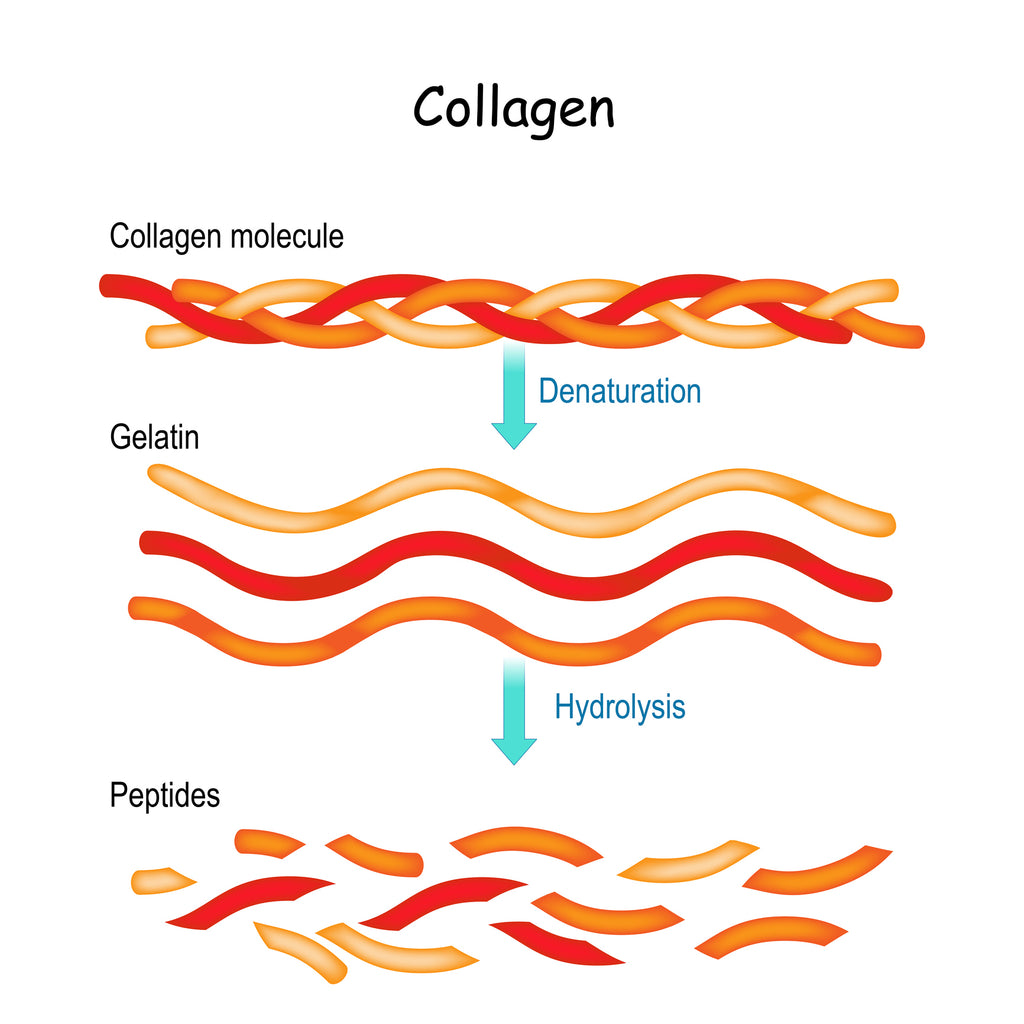
Where to Find Type II Collagen: Foods & Supplements
Now that you know the difference between gelatin, hydrolyzed collagen, and undenatured collagen, you might be wondering how to actually apply this healthful protein to your diet and lifestyle. So what kinds of products can you use and consume to get your fix of type II collagen? Let's take a look:
Bone Broth
When it comes to collagen-rich foods, bone broth is one of the best sources of type II collagen that you can make at home. Bone broth is a simple soup made by boiling up beef, pork, and/or chicken bones and cartilage, and you can get a lot of these often discarded parts at your local butcher's store. Once you have boiled up these parts with whatever herbs, vegetables, and seasonings you like, you have yourself a gelatin-rich soup that will give your body a type II collagen boost.
However, be careful that you know what bone broth works for, and what it does not. Despite the many celebrities and beauty addicts who swear by bone broth as some kind of miracle anti-aging elixir, the idea that bone broth improves your skin is actually a myth. Bone broth is mainly rich in gelatin, which is primarily a source of type II collagen, not type I which is the type you need to improve your skin.
So if you want to help your joints to function a little better and bolster your body's supplies of type II collagen, bone broth is a great addition to your diet. However, if you want to improve the health of your skin, studies show that bone broth is nowhere near as effective as hydrolyzed collagen supplements. 11
Collagen Pills, Capsules & Gummies
When it comes to choosing the right collagen supplement for you, you'll find that you have a few different options when it comes to their format.
Collagen tablets – whether they are pills, capsules, or chewable gummy bears – are all common forms of collagen supplements. This format is convenient for anyone who doesn't want to spend time dissolving powder into water or mixing up a collagen drink, and they are easily taken on the move. They are a convenient option if you already have other vitamins or medications that need to be taken at the same time each day, as you can easily add a collagen pill into that routine.
On the other hand, the of the downsides of pills and capsules is that they are often a low dosage that does not equate to the powdered or liquid options, meaning that you'd have to take multiple pills to get the equivalent dose as a drink might have. So if you don't fancy having to swallow multiple pills at a time, they might not be right for you.
Pills and capsules also typically work out more costly than powdered or liquid options, when you consider the cost per mg of collagen you are getting. The quality of collagen pills or gummy bears will also vary from brand to brand, so while collagen pills have a format that is no more or less effective than their liquid or powdered counterparts, you should always check the source, dosage, and quality of that pill to make sure you are getting what you need from the supplement.
Collagen Powder
Powdered collagen is a hugely popular option, fitting in with the many other types of protein powder supplements that dominate the health food industry.
What we love about a powder format is that it can be flavored or unflavored, making it a very versatile option. Flavored collagen powders may be enjoyed on their own or stirred into your morning smoothies or post-workout protein shakes, or simply dissolved into a glass of water and enjoyed as a refreshing and hydrating health boost. Unflavored collagen powders can also be used in drinks and meals for an added protein boost that you won't even notice.
Ideally, contrary to what many people will have you believe, collagen powders should really be dissolved in cold liquids, not hot. So those who swear by a scoop of collagen powder in their morning coffee may be barking up the wrong tree. This is because collagen's molecular structure melts at higher temperatures, diminishing or even negating the desired health benefits. So if you're looking to use collagen powder to improve your health, save yourself the wasted time and effort and make sure you use it in cold drinks only.
Liquid Collagen
Although any form of collagen supplement can be good for you when it comes from a good source and it has a suitably high dosage, our favorite way to take collagen is with liquid collagen drinks. Liquid collagen is one of the best forms of collagen to take due to its high bioavailability, meaning that it is easily absorbed by the body through your digestive system, allowing active collagen peptides to reach your bloodstream intact.
One of the main benefits of a liquid collagen drink is that they are premixed, saving you the hassle of mixing up powders and liquids. They tend to come in delicious flavors, but you have to be careful about added ingredients like sugars or preservatives – there's no point drinking liquid collagen just to have it packed with collagen-destroying sugar!
The very best collagen drinks are made with only natural, nourishing ingredients and they will also contain a combination of other ingredients designed to maximize their impact on your health.
Why Choose Taut Liquid Collagen?
Our Taut Liquid Collagen Drink contains a mix of hydrolyzed marine collagen peptides with elastin peptides, hyaluronic acid, vitamin C, grape seed extract, ceramide, and vitamin B6. This combination of high-quality ingredients creates the perfect formula to optimize your skin's health, increasing skin elasticity and reducing the appearance of wrinkles for a plumper, smoother, and more youthful complexion.
Every bottle contains a potent 13,000 mg of marine collagen peptides, which is type I collagen that supports your skin, hair, and nails. This potency is the highest you can get, and it maximizes your chances of getting the best results from the drink. Consider it a turbo-boost for your skin that can help dial back the hands of time and give your skin a youthful glow!
Even better, Taut Collagen Drink has a delicious orange flavor, and it is naturally sweetened with Stevia leaf. Our formula is preservative-free, gluten-free, and non-GMO, so you don't need to worry about any collagen-destroying nasties making their way into your system.
Plus, if joint health is your concern, the hyaluronic acid, elastin peptides, and antioxidants in this formula can help improve the strength and flexibility of your joints and protect against free radical damage throughout the body. It's a win-win for your health and your beauty!
Who Should Take Type II Collagen?
Taking collagen type II can help a variety of people reduce joint pain and inflammation. Let's take a look at the best candidates for type II collagen supplements.
Who Should Take Native Type II Collagen?
As we mentioned earlier in this article, oral type II collagen can also help osteoarthritis and rheumatoid arthritis patients to reduce pain and inflammation.
When it comes to treating the inflammation associated with rheumatoid arthritis (whether that's juvenile rheumatoid arthritis or long-standing rheumatoid arthritis), native type II collagen or UC-II may be the best form of type II collagen. That's because rheumatoid arthritis is an autoimmune inflammatory disease, and native type II collagen acts as an antigen to reduce inflammation.
Going back to the aforementioned 2009 placebo-controlled clinical trial of type II collagen for rheumatoid arthritis patients published by Arthritis Res. Ther. journal, we can definitively conclude from the scientific evidence and their clinical outcomes that undenatured chicken collagen type II can reduce stiffness, tenderness, and swelling. This makes native type II collagen a suitable supplementary treatment option for anyone struggling with chronic joint inflammation. 7
Who Should Take Hydrolyzed Type II Collagen Peptides?
Older adults are at higher risk of joint disorders thanks to the natural process of collagen breakdown that comes with age. Oral administration of type II collagen peptides can help reduce the likelihood of back, neck, hip, or knee pain by minimizing type II collagen degradation, protecting your joints, and reducing the damage to OA cartilage.
Hydrolyzed collagen peptides can help reduce future articular cartilage degradation, so you could also consider these types of supplements if you are concerned about your future joint health, or if joint disorders run in your family.
Of course, we should also add that it is best to consult a health care professional before adding any new supplements into your diet, to discuss how they may coincide with any existing therapy or medications you could also be taking.
What Dosage of Type II Collagen Should You Take?
Wondering how much collagen to take per day? Before deciding to take a daily dose of oral type II collagen, it's important to find the right dosage for you in order to really feel the benefits.
If you are hoping to take undenatured type II collagen to reduce inflammation in your joints, research suggests that between 10mg and 40mg per day is safe to take daily for up to a maximum of 24 weeks. 12, 13
If you are trying hydrolyzed collagen peptides for joint health, research suggests that 2.5mg daily is an effective dose. 14
Of course, if you are experiencing joint pain and inflammation, it helps to speak with your healthcare provider and get a physical examination to establish the optimal dose for your needs.
How Long Does It Take for Type II Collagen to Work?
If you're struggling with aches, pains, and creaky joints, you're probably keen for this supplement to work, fast. Unfortunately, collagen type II can't get to work overnight, and you're not going to feel better instantly. If only!
The 2009 clinical trial published in Arthritis Res. Ther. Journal noted that taking collagen type II for 24 weeks can have a positive impact on rheumatoid arthritis, most notably in reducing inflammation. So that's 6 months before you can really measure the results. 7
However, there is some slightly better news for osteoarthritis patients, especially those suffering from knee osteoarthritis (knee OA).
Another 2009 clinical trial published in the International Journal of Medical Sciences (Int. J. Med. Sci.) shows that results from taking collagen type II to treat knee osteoarthritis can manifest after just 90 days. After this time, this study in Int. J. Med. Sci. noted that knee osteoarthritis patients who were treated with native type II collagen (specifically UC-II) felt significant differences in the movement of the knee joint, most notably a reduction in pain and inflammation. 15
So if you're hoping to use oral collagen type II supplements in modulating knee osteoarthritis symptoms, research points to a shorter wait of 3 months for results.
From these two studies from Arthritis Res. Ther. and Int. J. Med. Sci., we can suggest that the optimum time to take type II collagen for joint improvement is 3–6 months. Results may vary from person to person and you might be lucky enough to feel some changes sooner rather than later. Over the course of 6 months, you should gradually begin to feel some results kicking in.
Side Effects & Precautions to Consider When Taking Type II Collagen
Collagen type II supplements are generally recognized as safe to use, but there are a few minor side effects you should be aware of and some precautions you should take before starting a program of supplements. These include:
Digestive Issues
Some people found during the use of collagen type II as treatment of osteoarthritis or rheumatoid arthritis that they experienced some digestive issues. This may be down to glucosamine and chondroitin sulfate, two components of native collagen type II from chicken cartilage that cause similar effects.
The main issues caused include nausea, heartburn, constipation, or diarrhea. You might also experience some bloating or heaviness in the stomach, although thankfully these side effects are relatively rare. These are most likely to occur if you take too high a dose over a sustained period of time. 16
Allergic Reactions
If you have suffered any allergic reactions to any collagen-derived products in the past, you should definitely avoid collagen type II supplements.
Allergic reactions to collagen type II may include a skin rash or breathing difficulties that can range from mild to severe. Like the potential side effects, collagen-specific allergies are quite rare so you likely don't need to worry if you don't suffer from any other allergies, as long as the product you are using doesn't contain any nasty preservatives or chemicals that could cause a reaction.
However, if you have an allergy to seafood, for example, you may need to skip marine collagen altogether. People with egg allergies should also be careful, as some supplements may derive part of their collagen from eggshell membranes. So make sure you always check the label!
Pregnancy & Breastfeeding
If you're an excited mama-to-be or you are breastfeeding your little one, you might want to avoid taking collagen type II supplements for now. While there is no specific advice out there that says you can't take it while pregnant or breastfeeding, not enough research has been done to conclude that it is 100% safe.
So when in doubt, avoid taking collagen type II until you can speak with a health care professional about your options. If you are experiencing joint pain while pregnant, they can help you find the best and safest treatment plan for you and your baby.
How to Optimize Your Results for Healthier Joints
Although type II collagen is an amazing protein for your cartilage and joints, we've got a little secret for you... joint health is not just about collagen! There are a few more key components that can help you keep your cartilage strong and reduce inflammation throughout the body, for a healthier, more comfortable you.
Here are some top tips that can help you get the most from your treatment plan:
Maximize Joint Lubrication & Repair
Type II collagen is not the only nutrient your body needs to keep joints healthy and strong. Going back to the extracellular matrix i.e. the spider web structure that makes up your cartilage, you don't just see three proteins (which are proteoglycan, elastin, and type II collagen, in case you forgot). The cartilage also contains ingredients called glycosaminoglycans, otherwise known as GAGs. These GAGs are long polysaccharide chains that fill in the spaces between proteins in your cartilage, and they are crucial components that help your joints absorb shock and give your joints resistance to daily wear and tear.
There are three types of GAGs in your articular cartilage, which is the cartilage that cushions the ends of your bones. These are chondroitin sulfate, keratin sulfate, and hyaluronic acid, and they are key components of your joints that keep cartilage lubricated and enable peak physical function.
So if you want to seriously improve the strength and resilience of your cartilage, you should consider combining your existing therapy or collagen treatments with a hyaluronic acid supplement.
Making Hyaluronic Acid Work for You
Taut Hydrate, RenewSkin Inc.'s hyaluronic acid capsules, work from the inside out to supercharge your body's supplies of this skin and joint-loving acid. Each capsule contains 120mg of clinically proven, plant-based, 99% pure hyaluronic acid (HA), which has high purity and low molecular weight for optimal absorption in the body. Alongside hyaluronic acid, each capsule also contains 120mg of grape seed extract, which is an incredibly powerful antioxidant that fights against free radical damage and inflammation throughout the body. Together, these two ingredients give your joints a boost of strength, hydration, and protection.
Taut Hydrate also brings good news for anyone on a plant-based diet who may miss out on the benefits of type II collagen products – these capsules are 100% vegan, preservative-free, gluten-free, and non-GMO.
Supplementing with HA aids the growth of joints and cartilage, which can help reduce inflammation and pain. For the very best results for your joints, you can use Taut Hydrate in conjunction with collagen supplements that target collagen degradation in your cartilage.
When it comes to beauty benefits, we've got more good news for you!The effectiveness of HA for skin health has been demonstrated in many clinical studies. Alongside collagen, it plays a vital role in maintaining skin elasticity and hydration. Hyabest's clinical trial shows that ingesting 120mg HA supplement daily for 3-6 weeks helps to significantly increase skin moisture content in the skin, which can help to smooth out wrinkles and slow down skin aging, leaving your skin more smooth, plump, and radiant.
Another win-win for your health and your complexion!
Speed Up Nutrient Delivery with Antioxidants
When it comes to treating joint pain, it's important to understand how and why cartilage damage happens. One big reason that we have mentioned is the breakdown of collagen, which is a key component in the structure and vitality of your joints.
Another thing that may impact your joint health is how quickly or slowly nutrients are delivered to repair your cartilage. This comes down to your circulation, and a good blood flow is essential to so many aspects of your health. Your circulation can be negatively impacted by inflammation, which is one of the big impacts of inflammatory diseases like arthritis.
Inflammation and poor circulation can also be caused by free radicals, those damaging molecules that run amok in the body if we are exposed to too many toxins like cigarette smoke, alcohol, and UV rays.
All of this damage means bad news for your cartilage and it can severely impact your joints in the long run, so whether you suffer from arthritis or not, it's best to try and keep your circulation flowing and beat those nasty free radicals at every chance you get. That's where antioxidants come in!
How Antioxidants Can Support You & Your Joints
Thankfully for arthritis patients and non-arthritis sufferers alike, a supplement like Masquelier's French Pine Bark Extract can help defend your body against inflammation. It works by providing your system with extremely powerful antioxidants that fight against free radical damage.
Masquelier's French Pine Bark Extract is created with patented OPC antioxidant technology to help neutralize excess free radicals and toxins throughout the body. The blend of French pine bark and grape seed extract in Masquelier's OPCs has been shown by scientific research to be 20 times more powerful than vitamin C and significantly more powerful than vitamin E as an antioxidant.
This can have a powerful effect on your body's ability to fight infections, stave off long-term diseases, reduce cardiovascular risk factors, and prevent premature skin aging – to name just a few of the benefits!
The best news for arthritis patients is that it can help collagen type II sustain its positive results on your joints, staving away toxic free radicals and protecting your cartilage from harm.
When it comes to rheumatoid arthritis in particular, French Pine Bark may help lower the inflammatory immune response that this condition causes. This has the effect of reducing excessive inflammation and keeping the body safe from harmful inflammatory conditions while also allowing your body to stave off infection and disease.
Providing your body with powerful antioxidants, potent collagen support, and nutritional and vascular support, these pine bark supplements are based on Dr. Masquelier’s lifetime of research. Try it today to protect, preserve, and enhance your youth and vitality!
Ready to Meet Your Anti-Aging Allies?
If you're looking for a way to get the best out of collagen supplements for both your health and your beauty, our Taut Collagen Anti Oxy Foxy Kit could be exactly what you need!
The Anti Oxy Foxy Kit is our health-focused transformation program that combines collagen with antioxidants for a full-body boost. The kit contains a three week supply of Taut Liquid Collagen Drink, and a box of Masquelier's French Pine Bark Extract.
With our Taut Liquid Collagen Drink, you can give your body a daily dose of 13,000 mg of hydrolyzed marine collagen peptides. This is a super potent dose of type I collagen that can seriously fight the signs of aging on your skin, not to mention your hair and nails, too. By replenishing the collagen in your dermis from the inside out, Taut Liquid Collagen Drink helps reduce the appearance of wrinkles, scars, and stretch marks – for firmer, fuller, smoother skin in as little as three weeks.
Our skin-loving drink isn't just packed with collagen either, each bottle also contains a healthy dose of elastin peptides, hyaluronic acid, vitamin C, grape seed extract, ceramide, and vitamin B6, making it a potent formula that combines firming, hydrating, and brightening ingredients for maximum anti-aging results.
Combine this with Masquelier's French Pine Bark supplement, and you've got a winning combination of collagen and powerful antioxidants that support your circulation, reduce inflammation, and strengthen your immune system's defenses.
So you can bid farewell to dry, dull, and fragile skin and welcome your new radiant glow with confidence!
Collagen Type II: The Bottom Line
Although collagen type II is a great option for anyone looking to improve their joint health and reduce inflammation, it's not going to give you the beauty results that so many of us want to get. So unless you specifically need collagen type II to treat your joints and strengthen cartilage, collagen type I is probably the best type out there for you. Type I collagen supplements can help improve skin elasticity, hydration, and smoothness, reducing the appearance of wrinkles and lending a healthy glow to your complexion.
Don't forget that when it comes to finding the best quality type I collagen, marine collagen is the way to go. You can rest assured that all of Taut's collagen is 100% marine collagen that has been sourced from red snapper, wild-caught in the Indian Ocean. Each bottle of Taut Liquid Collagen is also preservative-free, gluten-free, and non-GMO, and is naturally sweetened with Stevia leaf. No nasty chemicals or sugars!
With three weeks of our Liquid Collagen Drink, you can feel all of the benefits type I collagen has to offer.
Want the inside scoop? You can enjoy up to 15% off your transformation program when you treat yourself to a skin care subscription from Taut.
References:
- The Collagen Family
- What Is Collagen?
- Basic Science of Articular Cartilage
- Effects of orally administered undenatured type II collagen against arthritic inflammatory diseases
- Efficacy and tolerability of an undenatured type II collagen supplement
- Chicken type II collagen in rheumatoid arthritis
- Glucosamine and Chondroitin for Osteoarthritis
- Marine Origin Collagens
- Suppression of type II collagen-induced arthritis
- Bone Broth Unlikely to Provide Reliable Concentrations of Collagen Precursors Compared With Supplemental Sources of Collagen
- Undenatured type II collagen (UC-II®) for joint support
- Safety and efficacy of undenatured type II collagen in the treatment of osteoarthritis of the knee
- Effect of the novel low molecular weight hydrolyzed chicken sternal cartilage extract, BioCell Collagen, on improving osteoarthritis
- Safety and efficacy of undenatured type II collagen in the treatment of osteoarthritis of the knee
- COLLAGEN TYPE II


